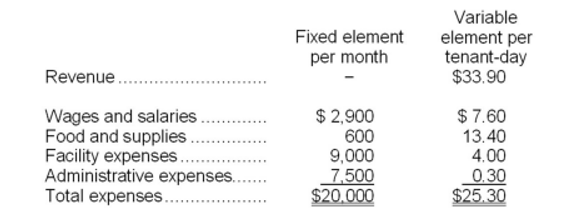Juenemann Kennel uses tenant-days as its measure of activity; an animal housed in the kennel for one day is counted as one tenant-day. During December, the kennel budgeted for 3,800 tenant-days, but its actual level of activity was 3,770 tenant-days. The kennel has provided the following data concerning the formulas used in its budgeting and its actual results for December:
Data used in budgeting:
Actual results for December:
-The spending variance for facility expenses in December would be closest to:
Definitions:
Hippocampus
A structure in the brain associated with the formation of new memories and is involved in learning and emotions.
Procedural Memories
The type of long-term memory responsible for knowing how to do things, also known as motor skills, involving the learning of tasks.
Infantile Amnesia
The inability of adults to recall personal memories from early childhood, typically before the age of three or four.
Explicit Memories
Memories of specific facts and experiences that individuals can consciously know and declare.
Q1: What is the labor efficiency variance for
Q38: Ishibashi Snow Removal's cost formula for its
Q51: The axes of the BCG and GE/McKinsey
Q66: Harrti Corporation has budgeted for the following
Q79: Coblentz Fabrication Corporation has a standard cost
Q80: In a standard costing system, if the
Q218: The manufacturing overhead in the flexible budget
Q245: The personnel expenses in the planning budget
Q252: Petroski Natural Dying Corporation measures its activity
Q301: Paradiso Medical Clinic measures its activity in